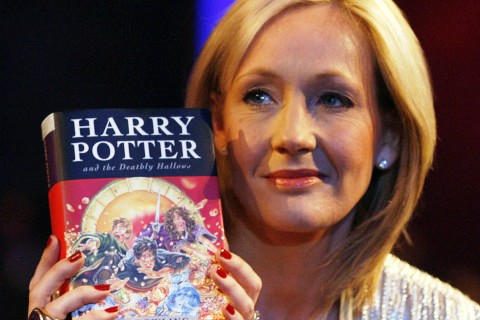This post is more accurately titled “Should Female Writers Abbreviate Their Names?”, since they are, it seems, the writers who most commonly do so.
The short and simply answer to the question is, of course, “They should do whatever they want.” For I’m not here to dictate otherwise, especially given the numerous different reasons a female writer would choose to use her initials instead of her full name:
- She had a given name that’s difficult to pronounce or spell
- To create a new identify for writing in a different genre
- To maintain a measure of distance from her non-writing life
- Because another author has her exact same name
- Because she dislikes for her given name
- To emulate classical male writers who used abbreviations, such as C.S. Forrester, C.S. Lewis, J.R.R. Tolkien, and J.D. Salinger
Just to name a few.





